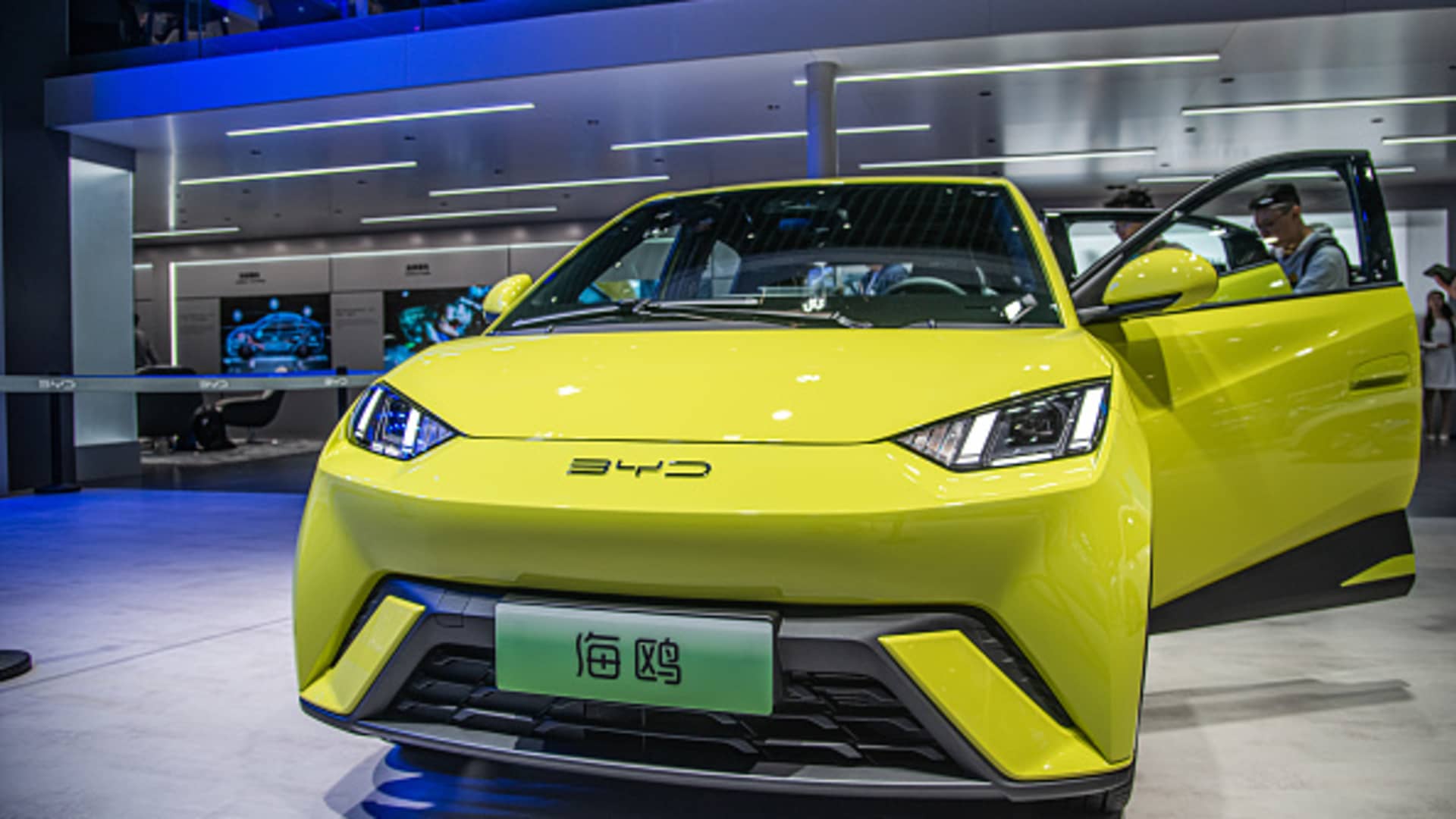Chinese automakers pose a growing threat to their American counterparts — even without selling directly to consumers in the U.S. market.
Sales of China-made vehicles are rising at notable rates in Asia, Europe and other countries outside those continents. China recently reported exports of more than 5 million vehicles in 2023, topping Japan to become the top country for car exports in the world.
That volume from well-established, government-owned companies like SAIC and Dongfeng, as well as newer players like BYD, Nio and others, has catapulted China from the sixth ranking to the top seed since 2020. It comes amid declining U.S. vehicle exports as companies such as General Motors have cut international operations. U.S. auto exports in 2022, the most recent data available, were down 25% from their peak in 2016, according to the U.S. Bureau of Economic Analysis.
America — fourth globally in vehicle exports prior to 2020 — ranked sixth in the world last year, falling behind No. 5 Mexico, No. 4 South Korea and No. 3 Germany, according to global consulting firm AlixPartners.



Not a threat, an opportunity for consumers to have more and hopefully better more affordable choices.
If there is a positive, it’s the threat of additional competition.
China would have to meet all of our safety guidelines and pass testing. That is fine. A properly motivated Chinese manufacturer can produce quality products, without a doubt.
Many Chinese goods are cheap for a reason though. Much of their manufacturing is unregulated and doing unapproved design modifications to save cost is just part of doing business. Parts are recycled as new, materials are substituted, QA is reduced or non-existent, etc.
When good QA is in effect, Chinese goods are just as expensive as other brands. It costs a lot of money to make and test quality things.
I wouldn’t imagine that their cars are going to be any cheaper. If they are, costs are going to be cut where you least expect and in the most annoying places. The Chinese are masters of “streamlining”, so pucker up for that. If they aren’t breaking a law by doing so, a part is going to be highly “optimized” for mass manufacturing. Using counterfeit parts is also a thing because product longevity doesn’t matter to the consumer any more.
Really, I am not hating on them. They just have a different way of doing business. Any buyer had better know the risks and benefits of any product they choose to buy, is what I am saying. Just take a trip to Harbor Freight if you need a tool to work once. Buy a quality tool if you need it to last.
Here is an example. I bought a light dimmer off of Amazon knowing it was going to have issues, and it did. After replacing the counterfeit MOSFETs, the box, potentiometer and board was still cheaper than a domestic product. (I should add that a MOSFET is the primary thing that you are buying in a DC dimmer. It’s like buying a car and immediately having to replace the engine.)
Yes Chinese goods do tend to have quality issues, but not always. Harbor Freight tools last way more than once IME. Companies like DJI make great products, probably the best on the market.
If Chinese companies can export simple reliable cheap EVs to the US I think that’s a large market segment that isn’t being filled.
Feels a lot like the Japanese Compact car invasion after the Oil Embargo of the 70’s. They came in and wiped the floor with the lazy, large, more expensive gas guzzlers that the US automakers were cranking out. Changed the whole game…
We can agree to disagree about Harbor Freight.
However, I think you missed my point.